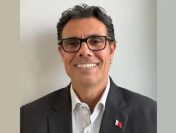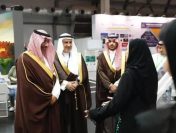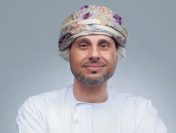
In a brand-new series Global Connections, CNN explores how visionaries, entrepreneurs, and companies are leveraging advancements in tech and logistics to reimagine what is possible and create a better way of doing business. From more sustainable practices to newly created supply chains, these businesses and projects are making the world smaller, creating new opportunities for prosperity, and contributing to a brighter tomorrow.
In the first episode, CNN meets men and women at every stage of trade – manufacturing, selling, transporting and buying – to learn about both their struggles and their solutions.
Jacek Jarocki is the Performance & Digital Transformation Director at global food processing company Danone. A few years ago, the company asked Jarocki to lead his plant through a digital transformation, overhauling every process to incorporate artificial intelligence and robotics. Jarocki explains that this request came with a catch: solutions achieved had to be scalable for the wider company, “Danone gave us so-called license to fail, but duty to learn. So, on one hand they were aware that something might not go in a good way first time, but we were obliged to really share the post-mortem with all the factories. On the other hand, when something went really good, we were creating so-called catalogue.”
Jarocki’s efforts began in 2018 with a whirlwind tour of competitors across Europe. Upon returning home to Poland, he implemented 25 pilot projects that Danone then replicated in 39 other European factories. “We started with only one person in the digital department. Now it’s a big separate department leading not only digitalisation, but mostly the performance of the plant. So for me, it was great to observe how it’s growing, how from a small idea, turning into something with very tangible results”, Jarocki says.
In Rwanda, online trade is helping merchants reach new markets across the African continent. Treasure Maphanga, Chief Operating Officer of the AeTrade Group, is building an online marketplace Sokokuu for small business owners to trade across borders, which also provides educational courses and easier access to finance.
Businesses can sign up to Sokokuu on a sliding scale: free for the smallest owners and more based on the company size. With that membership, Maphanga says that companies don’t just get a continent-wide site to sell their goods, but also support from AeTrade in terms of logistics, cross border payments and education, “We do a lot of handholding with the smaller businesses because we realise that for us it’s an investment in the future. And so a lot of e-commerce platforms will not do the kind of handholding that we do, which is what we call digital capacity building.”
The programme also meets Andreas Allström, the Director of Public Funding and Research Collaborations at Einride, a tech company specialising in self-driving and electric trucks. He believes driverless trucks will be beneficial in a number of ways, “The trucking industry today is… it’s a very inefficient industry. When you have few drivers, they work a lot of hours. They are away from the families for a long time. It’s really an unsustainable solution. So you can really say that it’s unsustainable in both ecological way, the economical way and the societal way.”
For now, customers can only use Einride’s services to move goods locally within one country. But the company is teaming up with an international consortium of partners to create a roadmap for autonomous trade across Europe. Allström says, “Collaboration is really what is the key here. So, that’s my main motivation, because I think Einride can benefit from this and the society can benefit from this.”
Finally, Sarela Herrada is working to revolutionise supply chains to ensure that people within the chain don’t have to leave home to pursue a better life. She launched SIMPLi, a sustainably-sourced ingredient company using a new product certification from the Regenerative Organic Alliance to ensure that each supplier stays true to their word, “Behind every piece of grain that is sold or every drop of oil, there is a farmer that has touched the product at the country of origin, and there’s a hand that has harvested, that has seeded, that has seen that product grow, and it really is a product of love.”
In Peru, Herrada meets with a local farming cooperative who recently earned ROC certification. In doing so, they’ve opened up new business opportunities to work with companies like SIMPLi, which exports goods globally, “On average, usually there is about six different parties that will touch the product from producer all the way to consumer. And what we’re trying to do is eliminate as many parties as we can, so we are able to shift those dollars that were, that would’ve been made by the middlemen back to the producer.”




